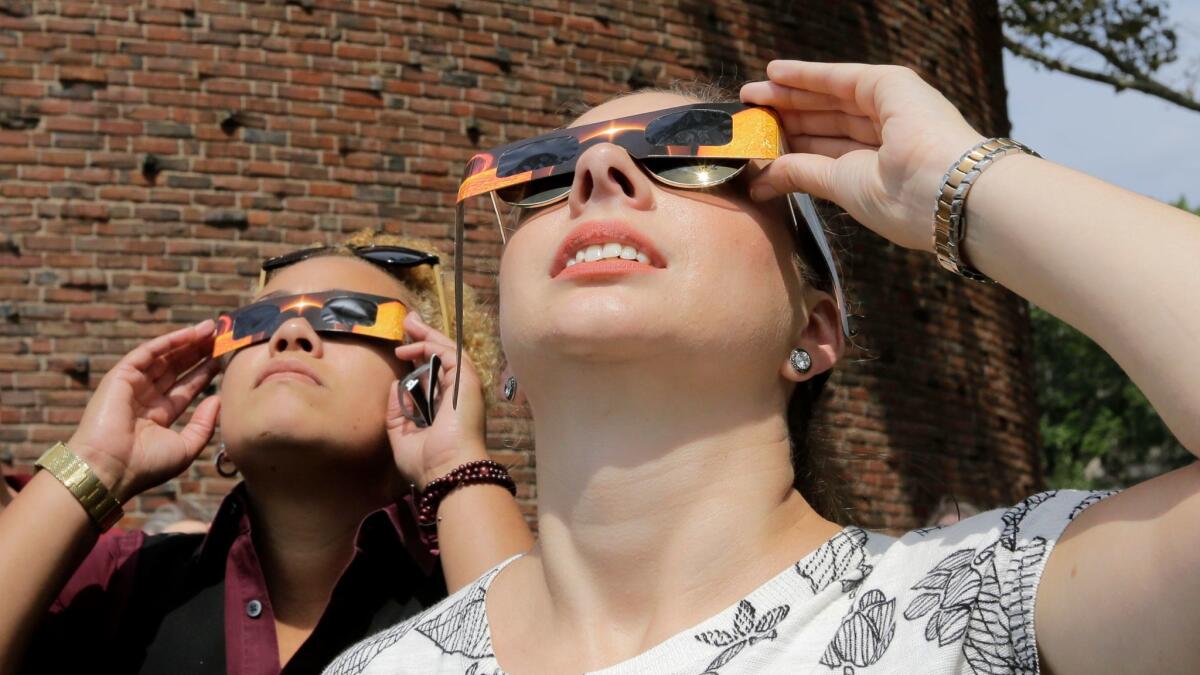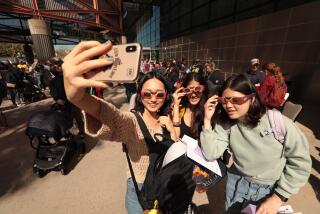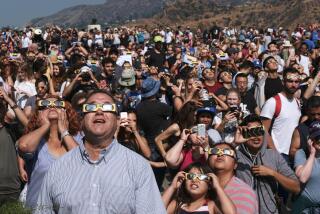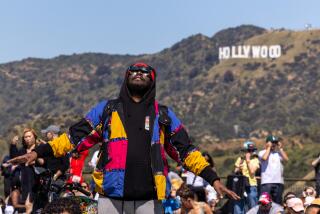If your eclipse glasses aren’t damaged, you can use them again in 2024

- Share via
So you gazed at the heavens on Monday and marveled with millions of Americans as the moon slowly moved across the face of the sun. If you were lucky, you even experienced the wonders of totality.
Now you find yourself with a pair or two — or maybe more — of paper eclipse glasses and you don’t know what to do with them.
Well, you have a few options.
First of all, you should know that as long as the solar filters on your glasses are not scratched, punctured or torn, there is no reason you can’t use them again and again.
They’ll still be good the next time a total solar eclipse casts a shadow on the planet in July of 2019. (That eclipse can be viewed from Chile and Argentina.)
Heck, they’ll still be good the next time there’s a total solar eclipse in the U.S. on April 8, 2024.
If you’ve heard rumors that the solar filters on eclipse glasses expire after three years, ignore them. According to NASA, they are fine to use indefinitely as long as they’re in good condition and meet the current ISO 12312-2 standard.
Alternatively, the nonprofit organization Astronomers Without Borders (AWB) has announced that it will be collecting used solar eclipse glasses to send to schools in South America and Asia, where partial eclipses will be visible next year.
The organization’s members will have more details soon. But if you can’t stand clutter and are desperate to send your glasses off right away, mail them to: Explore Scientific, 101 S. 48th St., Springdale, AR 72762.
For more information on AWB’s initiative, check out their website or their Facebook page. You can also subscribe to their newsletter.
Do you love science? I do! Follow me @DeborahNetburn and “like” Los Angeles Times Science & Health on Facebook.
MORE IN SCIENCE
Three years of preparation, two minutes of totality. For this eclipse scientist, it’s all worth it
Do you have an eclipse horror story? We want to hear it
Nighttime forecast for Mars: Bursts of rapidly falling snow







